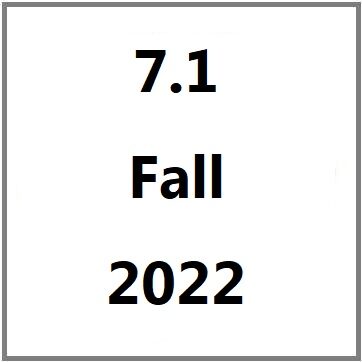Tick Tok (No Time to be a Crip)
Chimine Arfuso
Keywords: first gen; disability; crip time
Categories: Disability, Illness, and Survival (When the World Doesn’t Want You To); BIPOC Perspectives on Labor and Love during COVID
My 8-year-old twins have been home for 18 months. There was a brief moment between my husband and I accessing the vaccine and the Delta variant when my twins were able to attend a few weeks of summer camp. But this whole time I have been home. Teaching at the California State University as a lecturer, juggling various consulting gigs, homeschooling my twins, and my PTSD-induced chronic fatigue or trauma spirals with debilitating anxiety.
I am mid writing a paper for a peer-reviewed journal on making academia more accessible for students with disabilities. I had multiple writing projects back before this summer of 2020, but I had to drop the paper that was going to a chapter anthology and focus my efforts on the peer-reviewed journal. I just didn’t have the bandwidth to write two papers this summer. I really needed my break. I write primarily using Gloria Anzaldúa’s research method called Autohistoria-teoría, in short, the method calls for those of us with identities that are “in-between” or “in the cracks” to theorize first through our lived experiences. To weave our own knowings, whether from dreams, or cultural archetypes, first as theory making, then weave with the existing scholarship. The point is to find the cracks in the scholarship, to center complex lived experiences in knowledge production.
The reviewer asked for a lot more engagement with the current scholarship. Fine. I can do a lit review. But hold on, why am I making the argument again for autohistoria-teoría, I have published on this twice already. Once in my dissertation, more recently a pretty extensive argument for why we need marginalized voices using methods like this, in the Journal for Qualitative Inquiry no less. Zombie writing. Is this a thing?
Between the trauma anxiety spirals, and the pure exhaustion from being always asked to do more with less, I feel like I am failing at everything. My husband works a manual labor union job. He works 12-plus hours a day and comes home exhausted. He can’t give more. We live in a part of California that is labeled as economically disparaged. Not only does our community suffer from extreme poverty but we have a lack of healthcare providers, including mental health. I cannot find a decent rheumatologist and I must endure ableist remarks from my Trump supporting primary care provider even though my husband’s job provides us with an excellent low-cost share PPO.
My husband and I are also both first-generation Americans. His parents immigrated from Mexico; my mother was a refugee from Cuba. Neither of us come from the kind of intergenerational wealth that makes retirement an afterthought. I am 40 and we are stressing daily to try and buy a house in this housing market, so that we can entertain a possibility of retirement (after I turn 70 maybe?). Can crips work until they are 70? I laugh at the audacity of this. I need to be working less, not more, or longer.
But still I (write/ride the hamster wheel of productivity of academia) so that maybe I can secure a tenure track position (and economic security?). Can economic security exist? It is one apocalypse after another. Not the apocalypse, but forest fires raging making it harder to breathe, COVID filling hospitals (babies now dying from COVID too!!!), hurricanes deciding to grow feet and walk clear across NOLA to NY. It’s a doomed level of exhaustion.
Crip time. As Kafer (2013) explains, it is not just about enough time to do something, but about flexibility. There is no flexibility in late-stage capitalism. I am already behind many of my peers in terms of “life milestones” and the window to catch up is slowly becoming outside my reach. I worry for my children with Brown bodies, without my passing privilege, how will they catch up?
But still I keep moving forward. Day by day. The despair sometimes overtaking my ability to accomplish anything, and other days my anxiety has me over producing until I end up in an exhausted blob on my bed. How many fucking charts and to do lists can I make? I can’t organize my way into becoming two people. Can you find me under the covers? Peek-a-boo. My babies always looking for mami because mami is always busy busy busy.
I hate it here.
References
Kafer, A. (2013). Feminist Queer Crip. Indiana University Press.
Bio
Dr. Chimine Arfuso is a one-and-a-halfer generation Cuban-American, born to a Cuban refugee, and a first generation American born to French/Italian immigrants. Dr. Arfuso’s scholarship uses autohistoria-teoría to interrogate Cuban-American experiences such as racial identity formation, refugee/motherline trauma, and religious imperialism and its impact on African diaspora traditions for Cuban Americans. Recently, she has been diving into the complexity of being disabled and writing work to humanize mental illness and advocate for online/hybrid disability accommodations in academia. She has been an invited lecturer and panelist both domestically and internationally at institutions such as the Vanderbilt School of Medicine, University of California, Davis, University of California, Irvine, and the University of Nazerbayev in Kazakhstan. Currently, she is faculty in both the Women’s, Gender, and Sexuality Studies Department and the Chicano and Latin American Studies department at CSU, Fresno.
